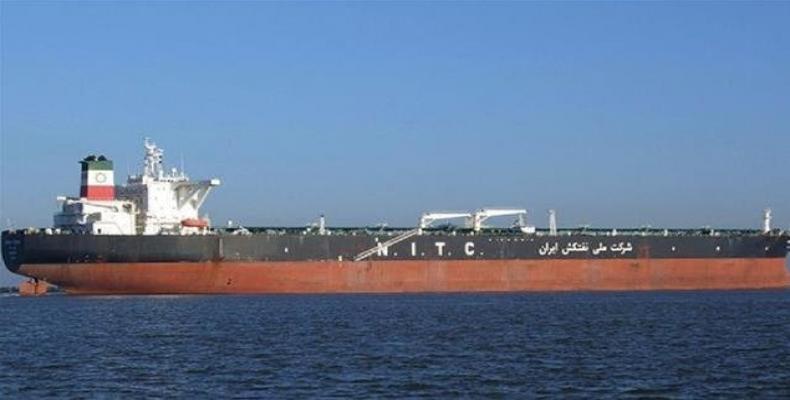Tehran, November 9 (RHC)-- Iran has lodged a complaint with the International Maritime Organization (IMO) against the U.S. over the re-imposition of sweeping sanctions, which target scores of Iranian ships as part of Washington's much-criticized push to cut off the country's oil exports.
In a tweet this week, Iran's Ambassador the UK Hamid Baeidinejad said the diplomatic mission under his watch submitted a letter to the London-based body to voice Tehran's protest at the return of the unlawful U.S. sanctions.
In the letter, Tehran's Embassy condemned "the imposition by the U.S. of unilateral sanctions on Iran's ships as a measure that violates international maritime law and endangers maritime security." It also called on the IMO to conduct a "special review" of the matter at its Assembly -- the organization's highest governing body.
As a specialized agency of the United Nations, the IMO -- which has 174 member states -- is tasked with regulating international shipping. The organization works to promote "safe, secure, environmentally sound, efficient and sustainable shipping through cooperation," as its mission statement reads.
It also addresses safety issues, environmental concerns, legal matters, technical cooperation among member states, maritime security and the efficiency of shipping.
The complaint was filed days after Washington put back in place a new round of unilateral sanctions against Iran's banking and energy sectors with the aim of cutting off oil sales and crucial exports. The U.S. Treasury Department's sanctions list includes over 200 people and ships among more than 700 Iranian or Iran-linked targets.
Washington has not even spared Iran's ill-fated Sanchi oil tanker, which collided with a frigate off China's east coast in January and sank with 32 people on board, in a gaffe that drew mockery from Iranian people and officials.
Earlier this week, the U.S. warned all ports and insurance companies to steer clear of Iranian ships, with Brian Hook, the State Department's special representative on Iran policy, saying the bans extended to insurers and underwriters.
"Knowingly providing these services to sanctioned Iranian shipping companies will result in the imposition of US sanctions," Hook told reporters, adding, "From the Suez Canal to the Strait of Malacca and all choke points in between, Iranian tankers are now a floating liability."
Washington had initially vowed to bring imports of Iranian oil down to zero, but it later granted exemptions to eight of Tehran's major customers -- including China, India, Japan and South Korea -- under their pressure.
The new round of sanctions, which were reinstated against Iran on Monday, was the second of its kind since May, when the U.S. defied the world community and unilaterally exited a 2015 multinational deal with Iran -- under which those bans had been lifted. A first round was reinstated in August.
The UN and the European Union -- which chaired the nuclear talks in the lead-up to the nuclear deal, officially known as the Joint Comprehensive Plan of Action (JCPOA) -- have criticized the U.S. for re-imposing the bans.
Iran's other partners to the deal -- France, Britain, Germany, Russia and China -- have firmly defended the deal and vowed serious efforts to protect the international document, which had been endorsed by UN Security Council Resolution 2231.
The European sides are currently working to put in place financial mechanisms aimed at protecting their business links with Iran and blunting the impact of the American restrictive measures.
Tehran writes to International Maritime Organization over illegal U.S. bans on Iranian ships

Related Articles
Commentaries
MAKE A COMMENT
All fields requiredMore Views
- Trump reportedly orders military to draw up plans to seize Panama Canal
- UN agency says migrant deaths hit record number in 2024
- Bolivia demands sovereign access to the sea and begins a new stage in relationship with Chile
- Ecuador's Electoral Debate: Luisa González urges Noboa not to lie to the people and keep his campaign promises
- Thousands of protesters in Spain call for a boycott of Israel and an end to genocidal attacks on Gaza

